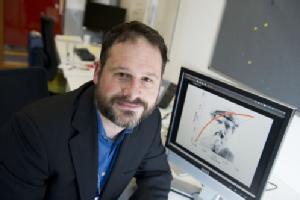New study to help people with long-term pain conditions back into work
The University of Warwick is leading a project to help unemployed people with long term pain conditions back into work.
Called RISE (Return to Work with Individualised Supported Employment) it will provide short-term supported work placements matched with each individual’s ability. The study is co-ordinated by the University of Warwick and funded by Arthritis Research UK.
The study is designed to examine how to help people with long term health conditions overcome obstacles to return, and remain, in the workforce. The placements are being offered by three local employers: Coventry City Council, University Hospitals Birmingham NHS Foundation Trust (UHB), and Serco.
The placements may be modified to make the individual’s pain as manageable as possible. The roles will include roles such as estates assistant, finance administrator, receptionist and nursing assistant are being offered to people who can travel to Birmingham or Coventry.
Leading the study is Dr Robert Froud who is principal research fellow at the Clinical Trials Unit at Warwick Medical School.

Dr Froud said: “We know that working is generally good for us, and that the right job can actually help with painful conditions. “Many painful ailments such as back pain, arthritis or headaches stop a lot of people from working However, we know that there are approaches that can be used to help people in pain to work normally and that this can have health benefits. Here we have developed a package of useful elements of those approaches such that they can be delivered as an intervention and now we are going to see how well we can deliver that intervention to the people in the community who may benefit.”
Participants in the study will be provided with a six-week individualised supported work placement that will be within their ability. They will be supported by a case manager throughout, who will work with the participant to find out why work may be difficult and how to tackle those obstacles. The hours and days of each placement will be flexible and will last for up to 16 hours a week.
The study will examine if participants experience any changes to their well-being such as health-related quality of life, pain and fatigue, and will also survey the number of initial placements completed and employer satisfaction. If this initial study is successful a full scale study will take be conducted.
Although the placements are unpaid, travel costs to and from the placements will be provided. If you would like to be considered for participation in the study contact the RISE team by calling 02476 151 622 or emailing RISE@warwick.ac.uk
Taking part should not affect an individual’s benefits. The government states on its website that neither work as part of a treatment programme, nor voluntary work, usually affect Employment Support Allowance (ESA) benefits (https://www.gov.uk/employment-support-allowance/eligibility). Individuals are advised to check with their benefit provider whether inclusion within the study will affect benefit payments.
12 March 2018
• The study is funded by the Arthritis Research UK Charity.
• Taking part should not affect an individual’s benefits. The government states on its website that neither work as part of a treatment programme, nor voluntary work, usually affect Employment Support Allowance (ESA) benefits (https://www.gov.uk/employment-support-allowance/eligibility). Individuals are advised to check with their benefit provider whether inclusion within the study will affect benefit payments.
For further details contact For further details contact Nicola Jones, Media Relations Manager University of Warwick 07920531221 or N.Jones.1@warwick.ac.uk
